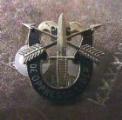Iran’s fingerprints in Fallujah
By David Ignatius, Thursday, January 9, 2:02 AM
First, the Obama administration, in its rush to leave the country, allowed the sectarian Shiite government of Prime Minister Nouri al-Maliki to undo many of the gains made against al-Qaeda. Second, Iran has waged a brilliant covert-action campaign that turned Maliki and Iraq into virtual clients of Tehran — and in the process alienated Sunnis and pushed them toward extremism.
The covert campaign in Iraq was directed by Qassem Suleimani, the head of the Quds Force of the Iranian Revolutionary Guard Corps (IRGC), and it included a range of different Shiite figures around Maliki. This ability to ride many horses at once is a mark of Suleimani’s operating style. The Iranians also benefit from intelligence relationships that in some cases date back 40 years.
Iran has drawn its cards from a full deck of Iraqi militias. Abu Mahdi al-Muhandis, who allegedly helped plan the 1983 attack on the U.S. Embassy in Kuwait, now directs the IRGC-backed insurgent group known as Kataib Hezbollah. Qais al-Khazali, charged with kidnapping and killing U.S. Marines in Karbala in 2007, runs an IRGC-allied insurgent group known as Asaib al-Haq, or the League of the Righteous. A third Iraqi Shiite militia is known as the Promised Day Brigades. At Iran’s covert direction, fighters from all three militias have been sent to Syria to battle Sunni rebels there.
Iran allegedly has been able to use Iraq as a staging ground for operations to support Syrian President Bashar al-Assad thanks partly to Hadi al-Ameri, the Iraqi minister of transportation. He headed the Badr Brigade, a pro-Iranian militia.
New Iraqi elections will be held in April. It’s a mark of Iran’s tactical skill that Tehran is said to be abandoning Maliki and searching for a new client. The United States is picking up the slack, once more supplying Maliki with advice and weapons. The Iranians, it must be said, play the Iraqi game with a finesse and staying power the United States has never matched.








Bookmarks